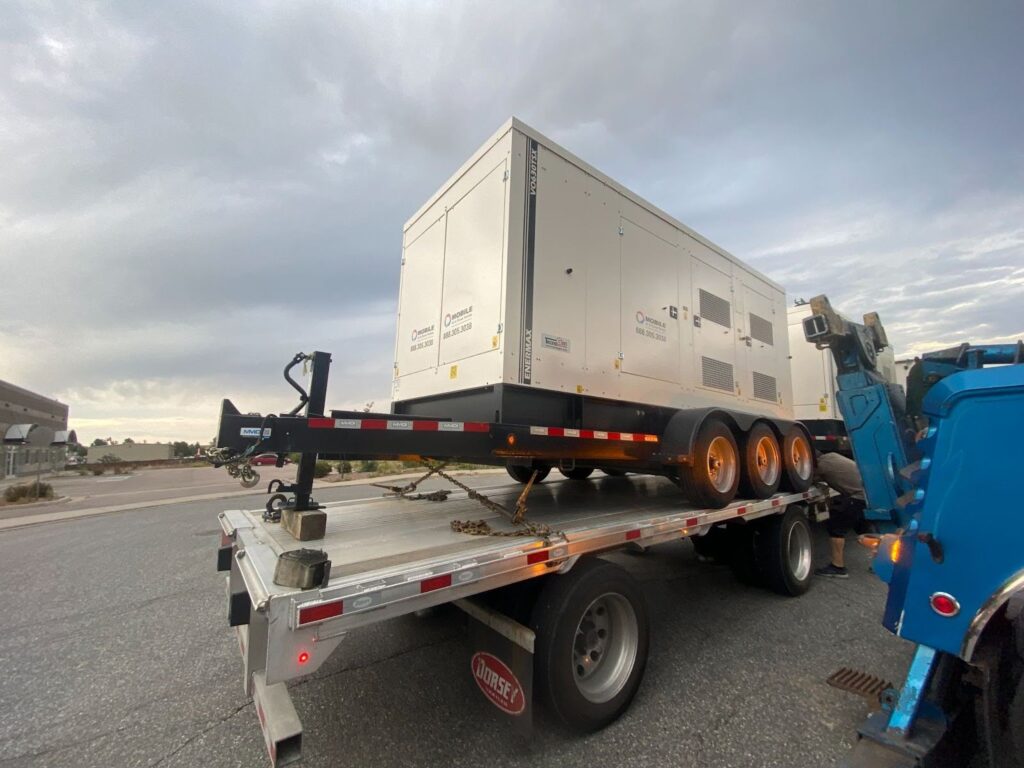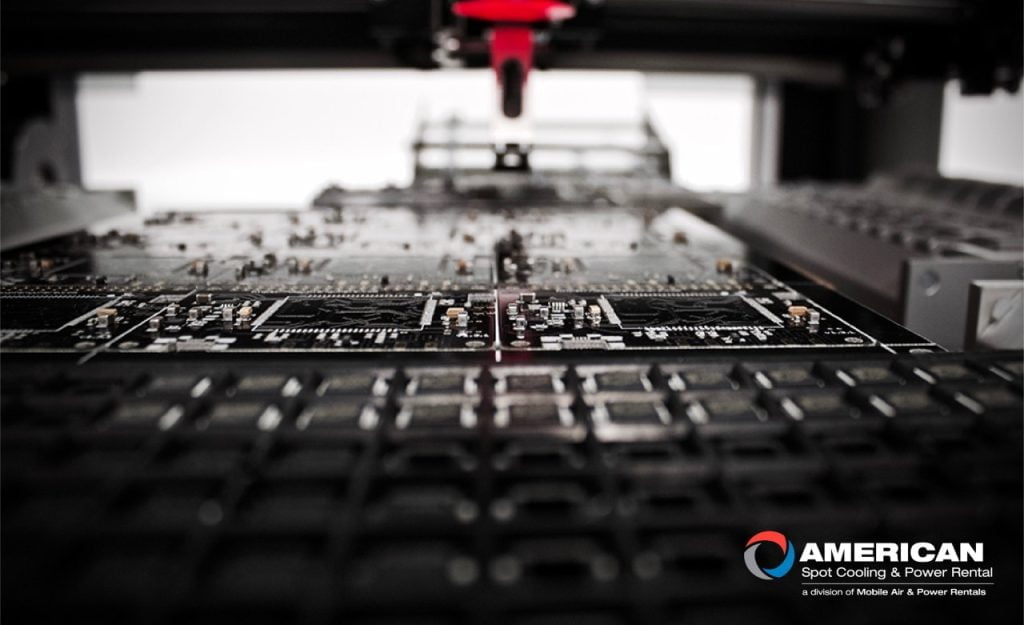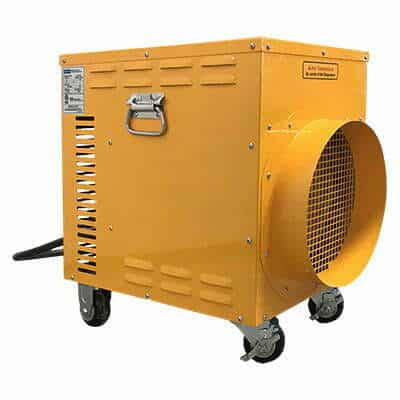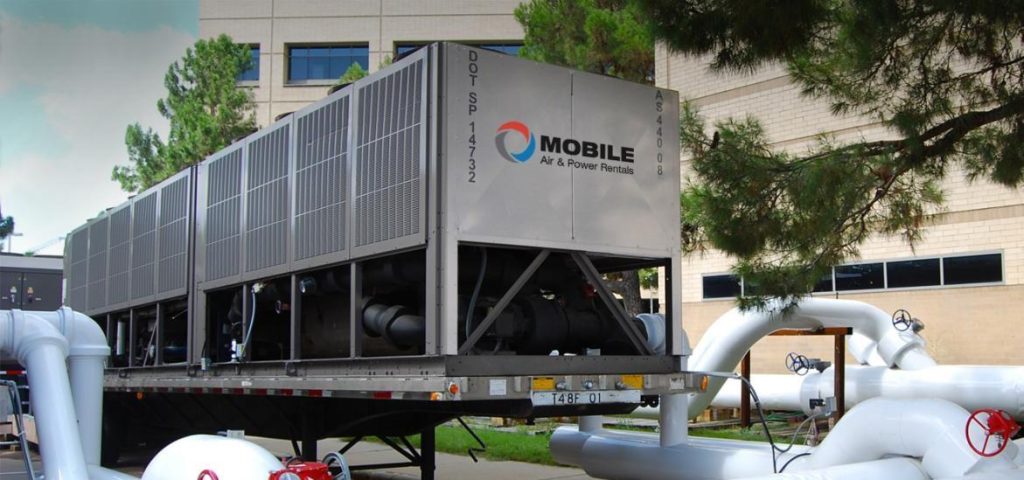Maintaining optimal temperature in your commercial or industrial space isn’t just about comfort, it is essential for equipment performance, employee productivity, and protecting valuable inventory. When your permanent HVAC system can’t meet your needs due to failure, maintenance, or increased demands, temporary climate control solutions provide crucial support to keep your operations running smoothly.
Many business owners aren’t sure when to consider HVAC rentals or how to select the right solution. Here are five indicators that your business needs temporary climate control and guidance for choosing the most effective equipment.
1. Sudden Equipment Malfunctions Due to Overheating
Modern business equipment often generates significant heat and requires specific temperature ranges to function properly. When you notice equipment shutdowns, error messages related to temperature, or performance issues during warmer periods, it’s a clear indicator that your current cooling system isn’t sufficient.
Temporary climate control solutions like spot cooling or portable cooling units can protect your valuable equipment while permanent solutions are implemented.
2. Uncomfortable Working Conditions Impacting Productivity
According to research from OSHA, productivity drops approximately 2% for every degree the temperature rises above the optimal comfort zone (typically 70-73°F). When employees are visibly uncomfortable—frequently adjusting thermostats, using personal fans, or complaining about temperature—your bottom line is already suffering.
Commercial HVAC rentals provide immediate relief and maintain consistent temperatures, allowing your team to focus on their work rather than their discomfort.
3. Seasonal Temperature Spikes Impacting Sensitive Inventory
Products like pharmaceuticals, food items, chemicals, and electronics often require strict temperature control. When seasonal heat waves or unexpected weather events threaten inventory integrity, temporary air conditioning can provide the supplemental cooling needed to maintain product quality and prevent costly losses.
Industrial cooling solutions can be strategically placed to protect temperature-sensitive areas without the expense of upgrading your entire system for seasonal demands.
4. Unexpected HVAC System Failure
When your primary HVAC system fails—whether due to mechanical issues, age, or damage—your business faces an immediate crisis. Every hour without proper climate control can impact operations, customer experience, and employee well-being.
Emergency HVAC rental services provide rapid solutions when you need them most, with many providers offering 24/7 emergency response to minimize disruption.
5. Large Events or Temporary Projects Requiring Additional Cooling or Heating
Special events, seasonal peaks in foot traffic, or temporary projects often create heating or cooling demands that exceed your permanent system’s capacity. Whether you’re hosting a large gathering, dealing with seasonal retail rushes, or setting up temporary workspaces, short-term climate control rentals can ensure comfort without costly permanent expansions.
Temporary heating solutions or supplemental cooling can be tailored to your specific needs and removed when no longer necessary, providing maximum flexibility.
Why Acting Quickly Matters
Delaying temporary climate control solutions after identifying these warning signs can lead to many problems, including:
- Equipment damage requiring expensive repairs or replacement
- Inventory spoilage or quality degradation
- Lost productivity from uncomfortable working conditions
- Safety concerns from extreme temperatures
- Customer dissatisfaction in retail or service environments
How to Choose the Right Temporary Climate Control Solution
Evaluate Your Facility’s Specific Needs
The right solution depends on your unique situation:
- Space size and layout: Larger or divided spaces may require multiple units or special distribution systems
- Heat load: Consider equipment, occupancy, and external factors affecting temperature
- Power availability: Some systems require significant electrical capacity
- Duration: Short-term emergencies versus longer-term supplemental needs affect equipment selection
Consider Delivery, Setup, and Maintenance Requirements
When evaluating temporary climate control providers, ask about:
- Response time for emergencies
- Installation support and configuration
- Ongoing maintenance during the rental period
- Removal process when no longer needed
Focus on Reliability and Expert Support
The best temporary climate control providers offer:
- 24/7 emergency response capabilities
- Professional assessment of your specific needs
- Energy-efficient equipment options
- Ongoing technical support throughout your rental
Stay Proactive with Your Climate Control Strategy
Recognizing the signs that your business needs supplemental or emergency climate control is the first step toward protecting your operations, equipment, and team. By understanding the warning signs and knowing how to select the right solution, you can minimize disruptions and maintain optimal conditions year-round.
Whether you’re facing an unexpected HVAC failure or planning for seasonal demands, temporary climate control solutions offer flexible, cost-effective options to keep your business running smoothly in any situation.
Need help fast? Contact Mobile Air today to speak to a climate control expert.






